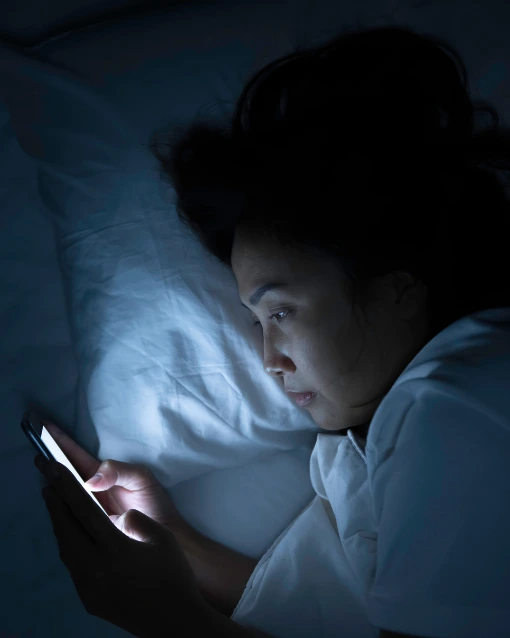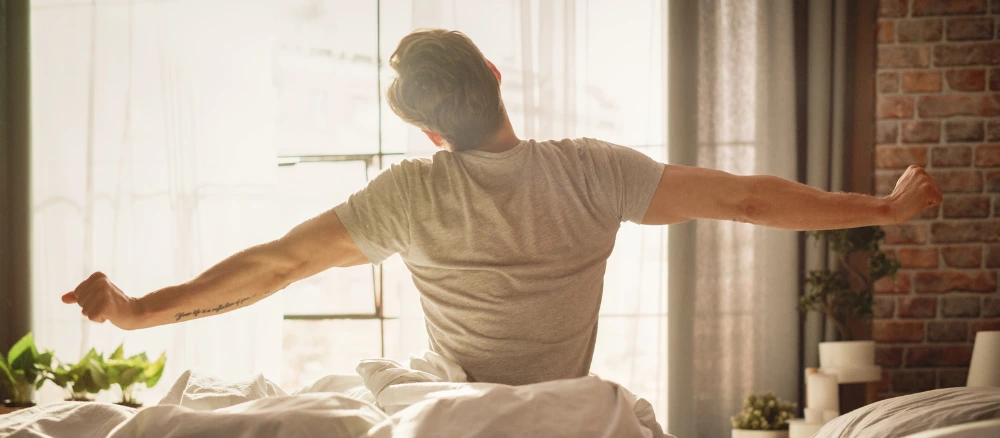
Why is sleep so important? Top tips for better sleep
Sleep is an essential part of our daily lives, and it is important for both our physical, mental, and emotional health. We know we need to sleep to recharge, but sometimes it’s not as simple as just closing our eyes and drifting off into the perfect slumber no matter how tired we are. I wanted to share some simple tips to improve sleep and the importance of sleep health for us both personally and professionally.
So why is sleeping so difficult for so many of us? It’s a natural process for our bodies and minds, so surely it should be as straightforward as getting into bed, curling up under a cosy duvet and shutting our eyes.
Sadly, in our modern world sleep has become the most unnatural of natural things. It has evolved to become an undervalued and somewhat inconvenient encroachment on our precious time in our endeavours to get more stuff done. We try to squeeze so much into each 24-hour cycle that the term midnight (middle of the night) signalling when we ought to be resting is meaningless.
What are the symptoms of poor sleep?
Typical symptoms related to poor sleep habits are varied from person to person.
Perhaps you crawl into bed exhausted at the end of a busy day only to find your mind whirring for hours unable to switch off.
Maybe you find you drift off easily enough but then wake up in the middle of the night unable to get back to sleep as the night-time ticks away steadily towards your wake-up alarm.
Every night your brain seems to save a special revolving door of negativity from your subconscious that daylight and your rational mind would ordinarily shake off immediately. Feelings and thoughts swirling out of control, impending misery surely heading your way or scary projections for an unpleasant future can seem so overwhelming in the middle of the night.
If any of these examples sound familiar you are not alone.
According to the NHS, as many as 1 in 3 of us in the UK suffer from either insomnia, not enough, or poor-quality sleep. I recently posted the latest guidance on sleep from the Mental Health Foundation
What is insomnia?
The clinical definition of insomnia involves difficulty falling asleep, staying asleep, or waking up too early on at least three nights per week for at least three months, despite adequate opportunity for sleep, and resulting in significant impairment in daytime functioning such as fatigue, irritability, and difficulty concentrating.
It can be acute (short term) or chronic (long-term) and can have a variety of underlying causes including stress, anxiety, depression, medical conditions, medications, and lifestyle factors.
Let’s take a dive around why sleep is so vital, how we can get more of it and what we can do to try and improve it. You’ll find my tips to improve sleep below.

So, why is sleep so important?
Sleep is not just important it is vital for a number of reasons, including:
Restoring the Body: it allows the body to repair and rejuvenate itself. During sleep, the body produces new cells, repairs damaged tissue, and recharges the immune system.
Improving Mental Health: it helps to regulate mood, hormones and reduce stress levels. A lack of sleep can lead to irritability, anxiety, and depression.
Enhancing Cognitive Function: it is essential for learning and memory consolidation. It is during sleep that the brain processes and consolidates new information.
Maintaining Physical Health: a lack of sleep has been linked to a number of physical health problems, including obesity, diabetes, and cardiovascular disease.
“I have never been great with sleep, but at the point I met with Joanne things were as bad as they have ever been; busy high pressure high profile job, three small children, urgent deadlines and minimal time to myself. Joanne has helped me to find clarity and perspective, and following the programme I feel that I have gained agency to make better choices around sleep and prioritising my own time in a different way. And when in bed, I am able to use the tips and techniques Joanne has shared to fall asleep without being assaulted with stresses and worries from the day”
– Suzi | London | Musician, Singer, Educator and Creative Director
Read Suzi’s case study.
Promoting a healthy circadian rhythm
Our bodies have a natural internal clock known as the circadian rhythm, which is responsible for regulating our sleep-wake cycle, as well as many other physiological processes such as body temperature, hormone production, and metabolism. This internal clock is primarily controlled by a region of the brain called the suprachiasmatic nucleus (SCN), which responds to cues such as light and darkness to synchronise our internal clock with the external environment.
When we disrupt our circadian rhythm by staying up late, sleeping in, or travelling across time zones, we may experience symptoms similar to jet lag such as daytime sleepiness, difficulty falling asleep or staying asleep at night, and impaired cognitive function. This is because our bodies rely on a regular sleep-wake cycle to function properly.
To maintain a healthy sleep routine circadian rhythm and promote optimal sleep, it is important to expose ourselves to natural light during the day, particularly in the morning, and limit our exposure to artificial light in the evening, particularly from electronic devices. Regular exercise, particularly in the morning or early afternoon, can also help regulate our circadian rhythm and improve our sleep.
So let’s look at some simple ways we can make the most of our circadian rhythm and work with our biology to improve the quality and quantity of our sleep.
Here are my straightforward tips that we can all make a daily practice for:
Tips to improve sleep
1. Stick to a regular sleep schedule
Try to go to bed and wake up at the same time every day, even on weekends. This helps regulate your body’s internal clock and improves the quality of your sleep.
2. Create a bedtime routine
Establish a relaxing pre-sleep ritual that helps you wind down and prepare for bed. This can include taking a warm bath or shower, reading a book, or listening to calming music.
3. Make your sleeping environment comfortable
Create a cool, dark, and quiet sleeping environment that is conducive to sleep. Consider investing in comfortable bedding and a supportive mattress.
4. Limit exposure to screens before bedtime
Avoid using electronic devices such as phones, tablets, and computers for at least an hour before bed, as the blue light emitted by these devices can interfere with your body’s production of the sleep hormone melatonin.
5. Avoid caffeine and alcohol before bedtime
Caffeine is a stimulant that can make it difficult to fall asleep, so it’s best to avoid consuming it at least 4-6 hours before bed. While alcohol may make you feel sleepy initially, caffeine can disrupt you later in the night.
6. Get regular exercise
Regular physical activity can help you fall asleep more easily and improve the quality of your sleep. However, try to avoid exercising too close to bedtime, as this can make it difficult to fall asleep.
7. Manage stress levels
Stress and anxiety can interfere with your sleep, so it’s important to find ways to manage stress during the day. This can include practising relaxation techniques such as deep breathing or meditation, or engaging in stress-reducing activities such as yoga or journaling.
8. Consider seeking professional help
If you are experiencing persistent sleep problems, consider talking to a healthcare professional who can help identify the underlying causes of your sleep issues and develop an appropriate treatment plan.
You may find Hypnotherapy for sleep useful and you can also explore my Sleep Programme below:
Remember, sleep is a vital component of overall health and well-being, and poor sleep can have significant negative impacts on physical and mental health. The investment you make in your sleep health can pay dividends in improved energy levels, mood, productivity, and overall quality of life. I hope these straightforward tips to improve sleep help you in some way.
The Sleep Programme
If you want to change your relationship with sleep or get support for sleep disorders, you might want to
explore my one-to-one coaching and therapy programme for sleep.
